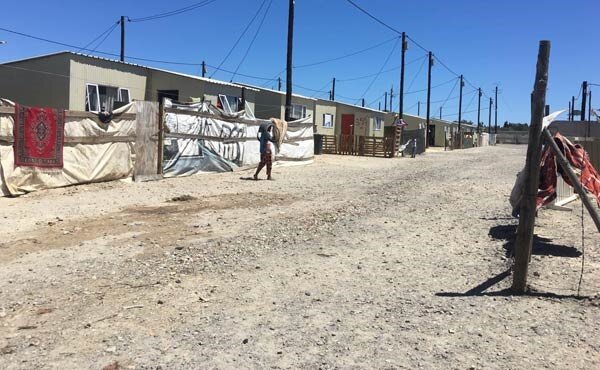I thought about writing a twitter thread on white privilege but then I realised that I probably had too much to say.
I have been conscious of my own white privilege for a long time, courtesy of a father who explained the difference between my suburban primary school and the ones that were in such trouble in Soweto on June 16, 1976. I was 11.
I was painfully aware of white privilege without having access to the words of it as I was grown up by another woman who was not my mother, or even a family member, Lilian Mpila. She ‘lived in’ while her own children lived somewhere else far away with other people. She fed me, dressed me, punished me (subtly, because it wasn’t her right), and because she was strong, we suffered each others’ micro-aggressions. The ones she directed at me were to teach me, painfully slowly, what it was like to have a paid slave in our house, and what that did to her psyche. The ones I directed at her should have been received by my mother.
Everything I am is because of how I grew up. The fact that my family was not rich and didn’t manage the veneer of middle class does not give me comparison rights to poorness. It is the fault of my family that it did not fare better under apartheid. It should have. It had such a massive head start and truthfully, my grandparents and parents didn’t take enough advantage of the total privilege their whiteness provided them. They were less than mediocre achievers (something I have inherited and am not critical of that at all), and would most definitely have been part of the working class who had not risen up by their bootstraps if it were not for the running head start of being white and having access.
So when white South Africans claim the poorness of immigrant parents and grandparents I want to scream, “That’s their fault! They had every single thing they needed to get out of that!” And I also want to interrogate how quickly they managed to get out of it. The journey that most dirt poor, white European refugees from war took when coming to South Africa was one that started them above at least 70% of the population of South Africa, who were not even seen, counted or considered. Every corner shop (my paternal grandfather started with a general dealer shop in Tulbagh) could only be owned by a white person. Every office job was done by a white person. Every house owned by a white person. Every teacher was white. Every sportsperson. White immigrants got bank loans and bursaries and built houses with cheap labour.
When the DA’s Natasha Mazzone claimed to have come from a poor family of immigrants who arrived here with nothing my response was, well, considering the circumstances they really should have done better. She should be embarrassed about how little they took advantage of their privilege on a platter. They had immediate access to virtual slave labour, land, commerce, cheap and good education, and all this was by law. Every single thing that black people were by law deprived of.
This same white privilege is also responsible for white ‘colour blindness’; the kind that has raised its vile and idiotic head with the Ashwin Willemse saga. Because underneath all the ‘disappointment’ speak around whatever went down and how these white men are not racist, is the complete inability to understand that although these men share a studio, the journey that brought them to it is incomparable. Ashwin’s is miraculous. A one in a million chance. A chance against every single odd. What was handed to Mallet and Botha throughout their lives, on every level, was the daily, weekly, monthly and yearly entitlement of whiteness that they do not even know how to recognise or acknowledge.
What needed to happen, even though it was too late, was a huge, heartfelt apology by Mallet and Botha, for being so unconscious that they had no idea they were causing hurt. I don’t think they meant to. That is possibly even worse. That is white privilege.
I have no idea why this white privilege, glaring and obvious at every turn, is so difficult to own. I do know that not owning it is the most dangerous thing any white person can do.

 It was a no brainer that I would march on Tuesday with many other Capetonians who are horrified by the atrocities committed by the state of Israel and its IDF against Palestinians. I was emotional about being one of the few South African Jews who were there, but committed to holding a section of the SAJFP banner. As we traipsed across the patch of rapidly greening grass to gather in Kaizersgracht Street we walked past these people in these tents and I got hysterical about land again.
It was a no brainer that I would march on Tuesday with many other Capetonians who are horrified by the atrocities committed by the state of Israel and its IDF against Palestinians. I was emotional about being one of the few South African Jews who were there, but committed to holding a section of the SAJFP banner. As we traipsed across the patch of rapidly greening grass to gather in Kaizersgracht Street we walked past these people in these tents and I got hysterical about land again.
 I eavesdropped on a casual conversation between two white Woodstock residents who were ignoring their dogs’ poo in the park. They were ‘ventilating’ the notion of social and affordable housing in Woodstock and they were kinda whinging about why Woodstock had to ‘get social housing’. ‘Why them, where they live and have recently spent a total and absolute fortune on their newly revamped old Victorians or built from scratch mixed development apartments?’ is what I think they were getting at. And I thought about the people, mainly tenants, who had had to make way for these revamps, and those who had been evicted to make way for the snazzy developments that show only white people in their artists’ impressions. What interested me more than their ignorance and short memories was that they saw absolutely no irony in the fact that Woodstock had been a social housing and affordable option up until they had moved here.
I eavesdropped on a casual conversation between two white Woodstock residents who were ignoring their dogs’ poo in the park. They were ‘ventilating’ the notion of social and affordable housing in Woodstock and they were kinda whinging about why Woodstock had to ‘get social housing’. ‘Why them, where they live and have recently spent a total and absolute fortune on their newly revamped old Victorians or built from scratch mixed development apartments?’ is what I think they were getting at. And I thought about the people, mainly tenants, who had had to make way for these revamps, and those who had been evicted to make way for the snazzy developments that show only white people in their artists’ impressions. What interested me more than their ignorance and short memories was that they saw absolutely no irony in the fact that Woodstock had been a social housing and affordable option up until they had moved here.